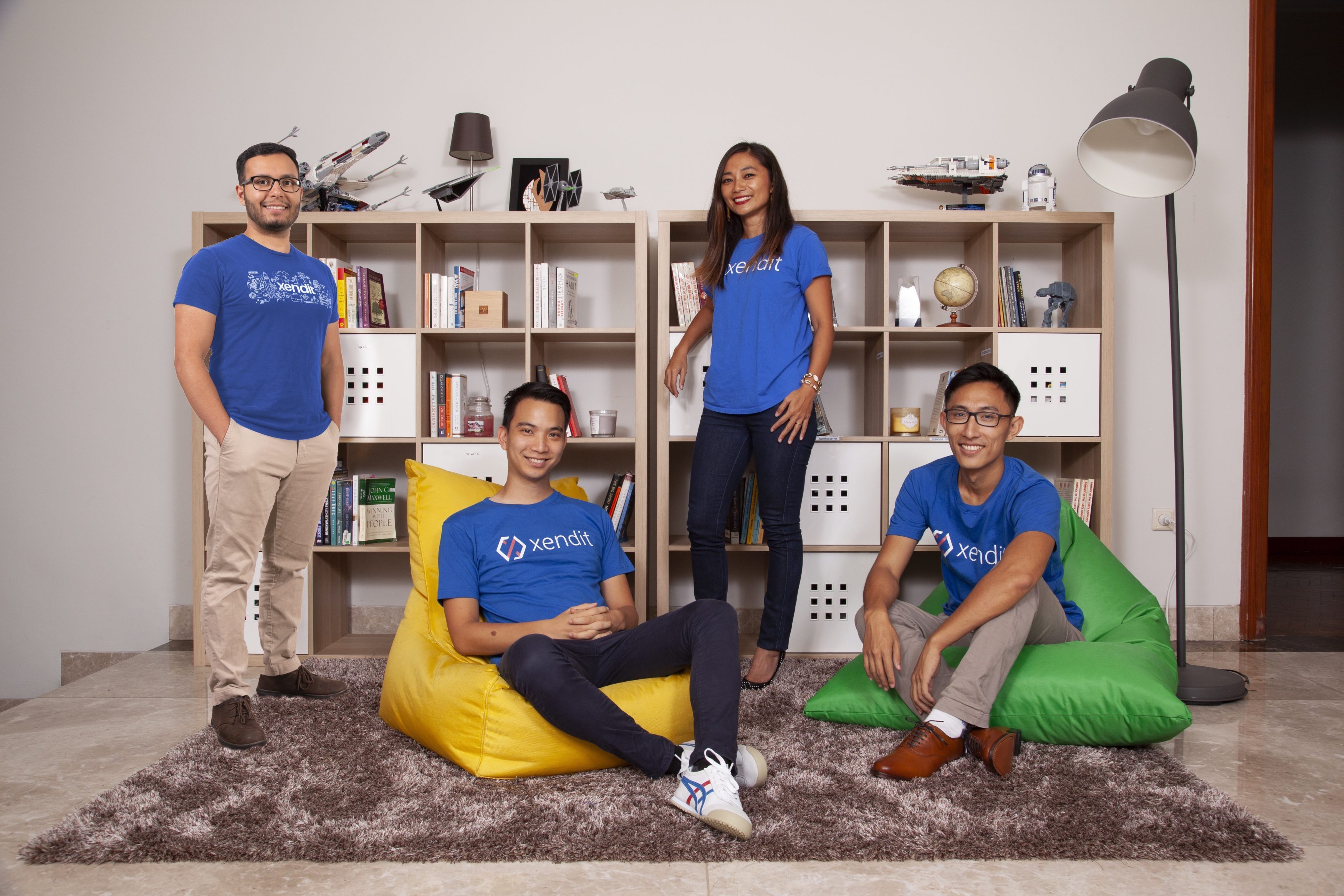Welcome back to The Interchange, the weekly TechCrunch series that looks at the latest — and what’s ahead — in the global fintech industry. It’s an incredible time to be a financial technology journalist. Besides the fact that over 20% of all venture dollars last year went into fintech startups, I am particularly excited about the myriad ways that this technology is helping boost inclusion all over the world. While the pandemic sucked on 1,000 different levels, one silver lining is that consumers and businesses have forced more fintech to exist, and that’s a good thing.
Do you want The Interchange in your inbox every Sunday? Sign up here.
The state of venture
Reporting on startups and the venture world at a time like this is a series of contradictions. One day, we’re reading about investment giants like Tiger Global seeing about $17 billion in losses. Then the next, I open my inbox to see pitches for nine-figure funding rounds (hello, SpotOn) and the birth of new unicorns (looking at you, Unit).
One day, I’m hearing personal accounts of VCs pulling term sheets at the last minute, with some citing that their own investors had backed out of providing funds, leaving founders scrambling to save a round — and face. Then the next, I have a founder telling me their latest round was preempted by a large venture firm in their industry.
One day, I’m having a fintech-focused VC tell me they haven’t invested in any startups since last October. The next, I’m having PayPal Venture alums share news of the closure of a new $158 million fund, ready to back about two dozen early-stage startups through their new firm, Infinity Ventures.
One day, Y Combinator is advising its portfolio founders to “plan for the worst” as startups across the globe scramble to navigate a sharp reversal after a 13-year bull run. The next, Lightspeed Venture Partners is urging founders to “stay optimistic.”
The myriad conflicting signals are enough to make anyone’s head spin, but as journalists, we have to take it all in stride. I’ve come to realize, in reporting on startups and venture capital pretty much exclusively for the past 5 years — and for many more before that in one capacity or another — that nothing is black and white, things aren’t always what they seem and they can change in the blink of an eye. For example, that fund I referred to? It actually closed last October.
During the late ’90s dot.com boom, I remember marveling at the ridiculous amounts of cash being thrown around to startups for sometimes ridiculous ideas. Not gonna lie, there was a similar vibe in 2021, where companies with no revenue, no customers and in some cases, no revenue model even, were landing millions of dollars in funding. It caused me serious anxiety to even open my inbox because the sheer number of pitches was so overwhelming and there were so many startups doing so many similar things, that it got harder and harder to tell them apart.
Here we are today. I have a (slightly) quieter inbox, VCs appear to be applying more (or in some cases, some when there was little to none) due diligence and valuations are either flat or only inching upward rather than soaring — even dropping in some cases. Layoffs abound, just months after headlines of a tech worker shortage in the midst of hiring frenzies. Meanwhile, startups are being held to higher standards when it comes to revenue, customers and profitability. There’s a panic in the air that wasn’t there before as everyone wonders what’s next for founders, investors and startups as a whole.
Is this a market correction or just a shift to the way things should be? Maybe a little of both. Either way, I do think fintech continues to be somewhat of an outlier, at least for now.

Weekly News
The drama between Plaid and Stripe continued this week with the former announcing an expansion outside its core offering of account linking for the first time since its 2013 inception. The news that Plaid is moving into identity and income verification, fraud prevention and account funding was not entirely shocking considering that the startup had made a couple of acquisitions in the past 18 months. It was largely in demand, according to CEO and co-founder Zach Perret, from customers and a desire on its part to “own more of the account funding process.” And it puts Plaid into even more of a competitive position with payments giant Stripe.
Meanwhile, Stripe had news of its own, taking the wraps off Data Pipeline, an infrastructure product that will let its users create links between their Stripe transaction data and data stores that they keep in Amazon Redshift or Snowflake’s Data Cloud.
As our own Ingrid Lunden puts it, the move underscores how Stripe is positioning itself as more than just a payments provider. It has ambitions to be a larger financial services and data powerhouse, a “financial infrastructure platform for businesses” in its own words. Isn’t that what Plaid is?
So, in essence, Plaid is becoming more like Stripe and Stripe is becoming more like Plaid. Not at all confusing.
Plaid’s recent moves are less unexpected than they might seem at the surface — beyond the related recent acquisitions it has made. Recall that Visa almost bought Plaid for $5.3 billion before that deal fell apart in early 2021 due to regulatory concerns. The potential combination first gained a higher level of complexity when, in November 2020, the Department of Justice sued to block Visa’s proposed purchase of Plaid. The DOJ asserted that Visa was buying Plaid to eliminate a competitor in the world of online debit transactions. Visa denied that assertion, stating that Plaid was not a payments company and, therefore, not a direct competitor.
But one of the things that came out at that time was that Visa in fact did view Plaid as a potential competitor, with one executive likening the startup to an island “volcano” whose capabilities at that time were just “the tip showing above the water,” warning that “what lies beneath, though, is a massive opportunity — one that threatens Visa.” And when conducting due diligence in the acquisition process, Visa’s senior executives reportedly grew alarmed by Plaid’s plans to add “a meaningful money movement business by the end of 2021.”
When you look back at that history, Plaid’s recent product announcements are hardly a surprise. If anything, most of us are wondering “What took them so long?” For more on Alex Wilhelm’s and my take on the topic, head here.
Meanwhile, in Mexico, retail brokerage startup Flink, which claims to be the first in its home country to offer fractional shares directly from the New York Stock Exchange, said it will be buying Vifaru Casa de Bolsa, subject to approval from the National Banking and Securities Commission (CNBV, by its acronym in Spanish). Why is this a big deal? It marks the first time in Mexico that a startup is acquiring a brokerage firm under the supervision of regulatory authorities. Once the deal closes, Flink says it will create new financial products “for millions of Mexicans to invest.”
“At Flink, our mission is to create a much more equitable ecosystem, where anyone can access quality financial services. Therefore, this transaction is a great step toward fulfilling our objective of generating true financial inclusion in the country and the region,” said Flink CEO and co-founder Sergio Jiménez Amozurrutia in a press release.
It’s not the first time that a startup has acquired an existing financial institution. In September 2020, I wrote about how mobile banking startup Jiko Group bought Mid-Central National Bank in Wadena, Minnesota. In that case, both the Federal Reserve and Office of the Comptroller of the Currency and the Federal Reserve Bank of San Francisco approved the transaction. But it was a process. “The deal came after 3 years of ‘rigorous’ R&D, testing and auditing, the company said.”
More recently, Plaid co-founder William Hockey — who left the company in 2019 — purchased a community bank (Northern California National Bank or NorCal) for $50 million last year. He rebranded it to Column, his latest startup, which he believes is the first financial institution of its kind: a “financial infrastructure” bank.
I find it kind of fascinating when fintechs buy incumbents, and I expect we’ll only continue to see more of it.
Also last week, Square continues to integrate Afterpay into its offering, by extending buy now, pay later (BNPL) functionality to in-person sellers, meaning consumers now can use BNPL to make purchases at local businesses in the United States and Australia. The $29 billion deal closed in January.
Also, in the world of BNPL, London-based Zilch — which was valued at $2 billion last November — announced its launch into the U.S. market. Launching with over 150,000 pre-registered customers, Zilch says its arrival in the U.S. follows a huge growth period, reaching over 2 million customers in the 18 months since it launched in the U.K.
In other (big) BNPL news, the Wall Street Journal reported that Klarna aims to raise up to $1 billion from new and existing backers in a deal that could value the company “at almost a third less than the $45.9 billion valuation it achieved just under a year ago,” or in the value in the low $30-billion-range, post-money. TC’s own Alex Wilhelm has thoughts about that. Read them here.
Meanwhile, Revolut co-founder Nik Storonsky announced that he plans to launch his own venture fund, powered by artificial intelligence, to compete with “legacy” venture capital investors, reports Forbes. Storonsky said he will himself invest, with others, around $200 million into the Quantum Light Capital fund.
And, cryptocurrency exchange FTX said it is launching stock trading capabilities for its customers through its U.S. division. The company, helmed by co-founder and billionaire Sam Bankman-Fried, said that its launch will start in private beta mode for a select group of customers chosen from a waitlist before a full rollout in late 2022. Anita Ramaswamy gives us all the details here.

Fundings and M&A
Last week, I (exclusively) covered two raises that related to the residential real estate market, which is an increasing area of interest for VCs as of late. In this case, both were renter-focused. First off, I wrote about Arrived — a proptech that raised $25 million in a Series A funding round led by Forerunner Ventures to give people the ability to buy shares in single-family rentals with “as little as $100.” Returning backers included Bezos Expeditions, the personal investment company of Jeff Bezos; Good Friends, a venture fund run by the CEOs and co-founders of Warby Parker, Harry’s and Allbirds, as well as Spencer Rascoff, co-founder and former CEO of Zillow.
The concept of fractional real estate investing is not a new one. But what stood out about Arrived is that it claims to be the first in the space that is “fully SEC-qualified,” meaning that it has approval from the Securities and Exchange Commission to offer shares of individual homes. In other words, it’s essentially creating house IPOs, or taking houses public. As a former real estate reporter, I can’t help but geek out when tech and real estate intersect. Especially when companies give everyday Americans greater access to investing in a way they couldn’t before.
I also wrote about Belong, a three-sided marketplace that provides services for homeowners who are both landlords and renters.
From the homeowner perspective, Belong offers home management services that it says makes owning a rental home easier. For example, if a rental property needs a repair, the startup has an in-house maintenance team that can handle those on a landlord’s behalf. It also provides the homeowners with financial tools to manage their investment, as well as guaranteed rent on the first of each month. And it will also help an owner fix up a property and get it in rental-ready shape.
On the renters side, Belong says it has created a system that gives them a way to build home ownership themselves. For example, with each one-time rent payment, residents get around 3% of the price of rent back, which accumulates in an account with the aim of being used toward a down payment on the purchase of a home — but only if it’s used to buy a home through its platform. You see, the company serves as a real estate brokerage as well.
Belong just secured $80 million — $50 million in equity and $30 million in debit. Fifth Wall preempted the round, which also included participation from repeat backers Battery Ventures, Andreessen Horowitz and GGV Capital.
My favorite line in this story was from Belong CEO and co-founder Ale Resnik, who said part of the company’s goal is to make renters not feel like “second-class citizens.” There’s a bigger story here on why startups focused on the rental market seem to be attracting venture dollars. One of these days, I’ll write it.
Meanwhile, infrastructure continues to rake in the big bucks. Xendit, a payments infrastructure platform for Southeast Asia, raised $300 million in fresh funding. The company’s new valuation wasn’t disclosed, but it hit unicorn status in its last round of funding in September 2021. And, BaaS startup Unit closed on a $100 million round at a $1.2 billion valuation. Speaking of infrastructure, payments infra startup Finix announced some new product news last week, including the fact that it is now a registered payment facilitator and has expanded its in-person payments capabilities and added real-time fraud monitoring.
In LatAm, UnDosTres, a Mexican fintech company working on airtime top-ups, service payments and entertainment purchases, announced it closed on a $30 million Series B led by IDC Investments.
And Nomad, a Brazilian fintech company that allows Brazilians to open a 100% digital banking/investment account in a North American bank, raised $32 million just 9 months after their first round. Stripes led the latest financing. The company says it has amassed 300,000 customers in less than 18 months of operations. Speaking of Brazil, check out this feature I did on Neon, a digital bank with 16 million customers in its home country focused on the working class.
Trellis, a company that wants to help people pay less money for their car insurance and make it easier to switch with its API, raised $5 million from Amex Ventures.
Caribou, a fintech whose mission is to help people take control of their car payments, closed on $115 million in an “oversubscribed” Series C funding round, which valued the company at $1.1 billion. Goldman Sachs Asset Management led the financing, expanding its services across the auto financial landscape, recently launching its digital car insurance marketplace.
That’s it for this week…Wishing you all a wonderful Sunday and week ahead. Thanks for reading!
P.S. This newsletter is a work in progress, so I’m experimenting with different formats, lengths, etc. I intentionally made this edition a bit shorter than the previous one. I’m always open to constructive feedback, so let me know if there’s anything you’d like to see more — or less — of.
































Comment